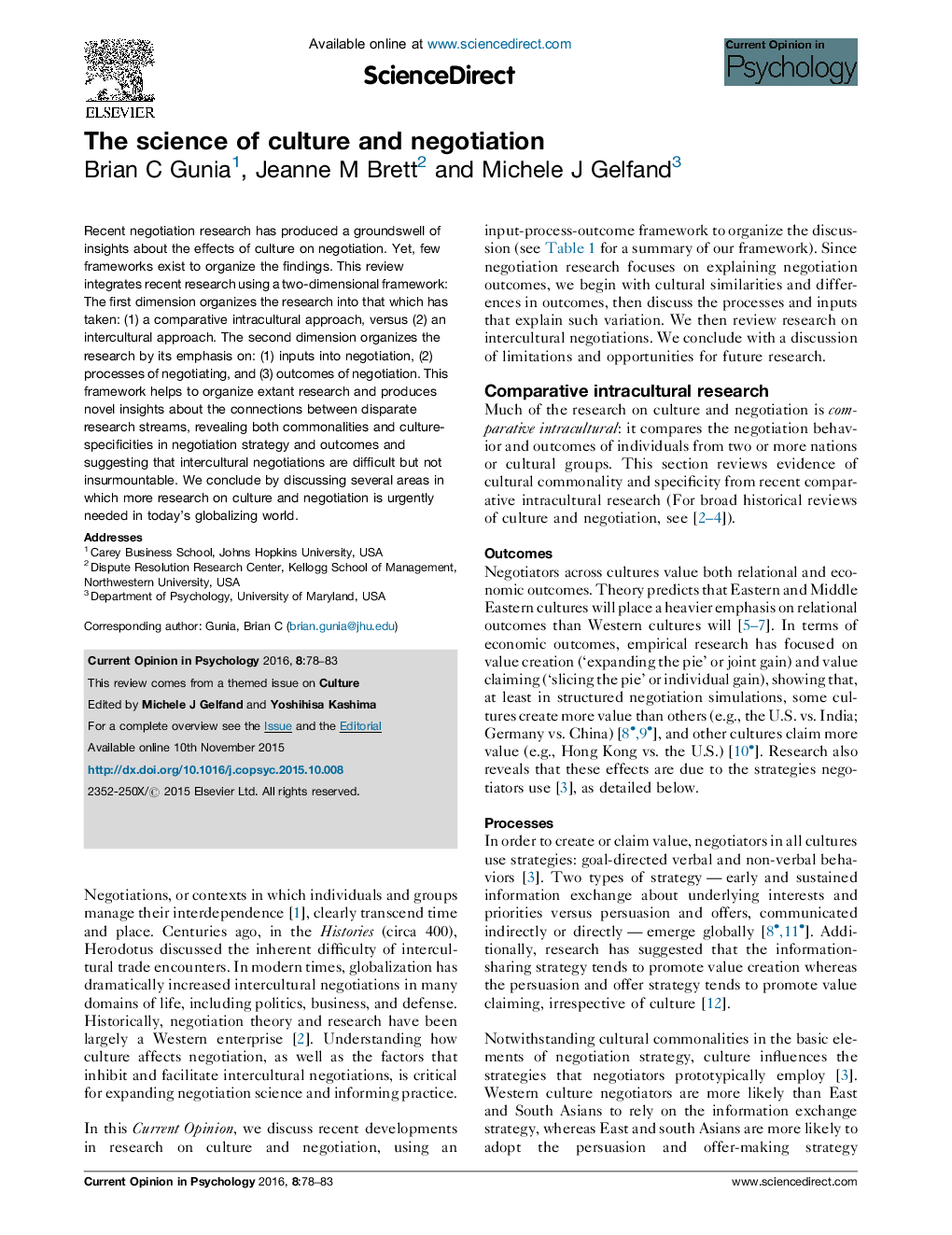| Article ID | Journal | Published Year | Pages | File Type |
|---|---|---|---|---|
| 879307 | Current Opinion in Psychology | 2016 | 6 Pages |
•Research compares negotiators from several cultures or actually has them negotiate.•We use an input-process-outcome model to organize the findings.•Culture influences many aspects of negotiators’ assumptions, strategies, and outcomes.•But other aspects (e.g., the range of strategies/outcomes) are culturally invariant.•Factors like cultural intelligence can help intercultural negotiators create value.
Recent negotiation research has produced a groundswell of insights about the effects of culture on negotiation. Yet, few frameworks exist to organize the findings. This review integrates recent research using a two-dimensional framework: The first dimension organizes the research into that which has taken: (1) a comparative intracultural approach, versus (2) an intercultural approach. The second dimension organizes the research by its emphasis on: (1) inputs into negotiation, (2) processes of negotiating, and (3) outcomes of negotiation. This framework helps to organize extant research and produces novel insights about the connections between disparate research streams, revealing both commonalities and culture-specificities in negotiation strategy and outcomes and suggesting that intercultural negotiations are difficult but not insurmountable. We conclude by discussing several areas in which more research on culture and negotiation is urgently needed in today's globalizing world.
